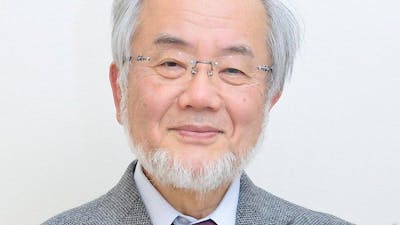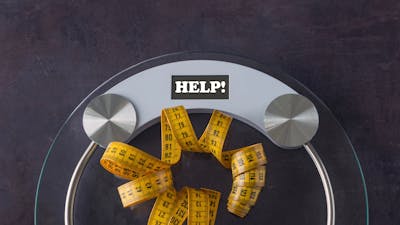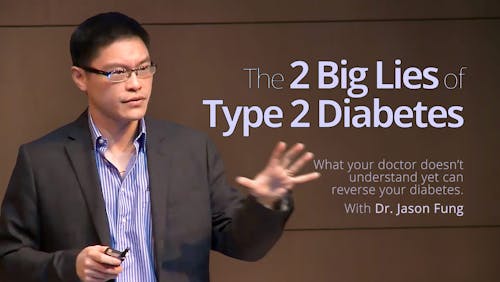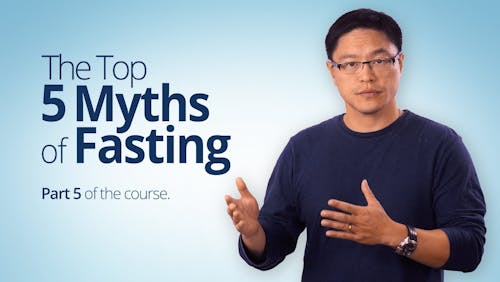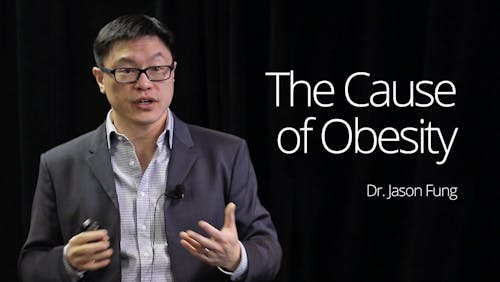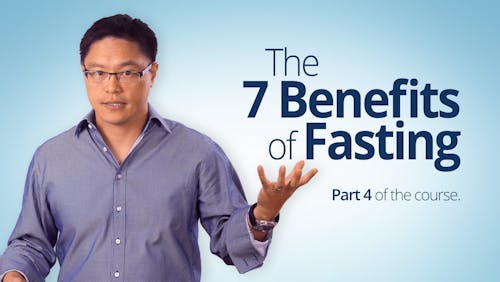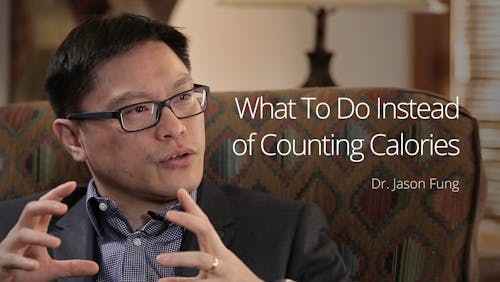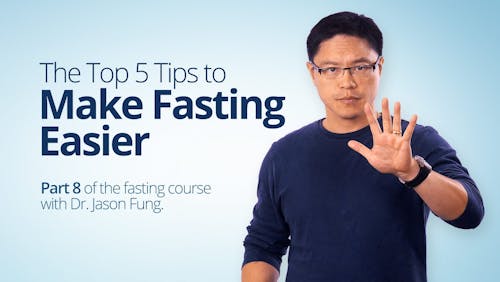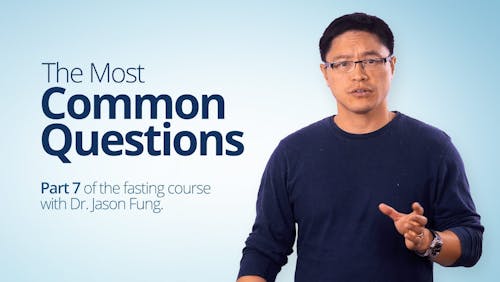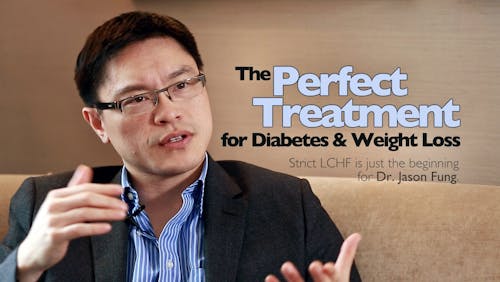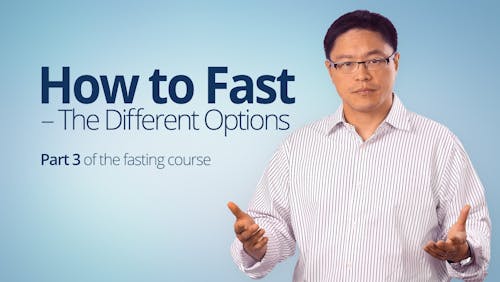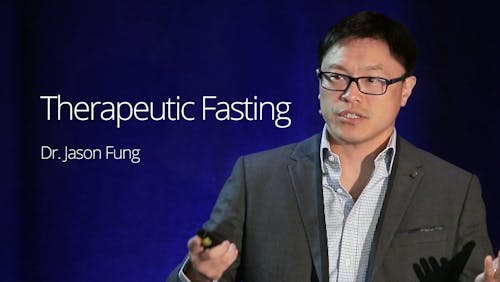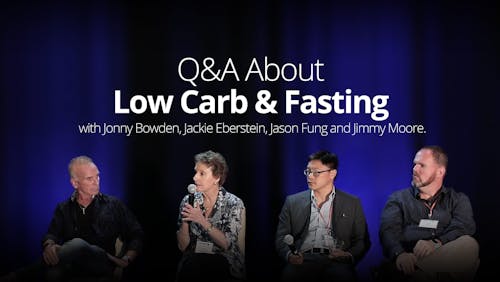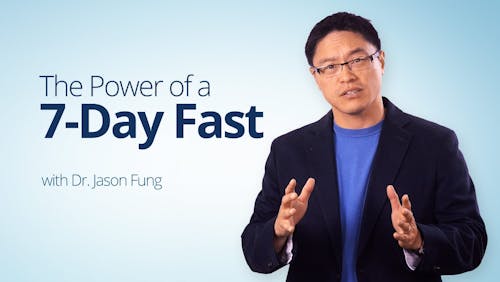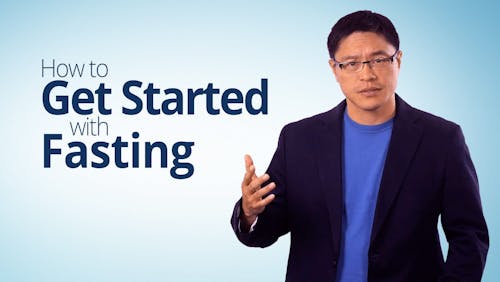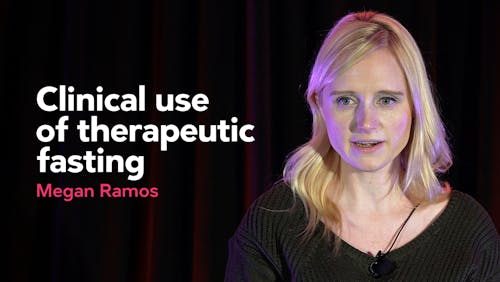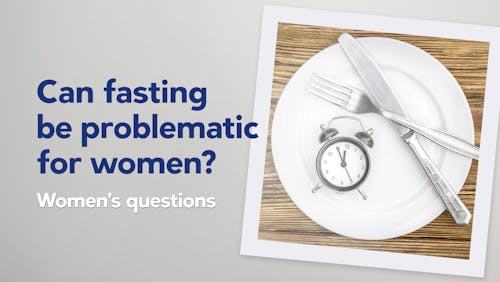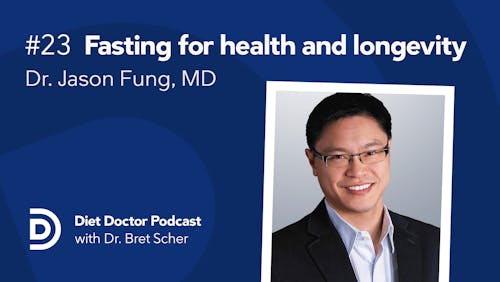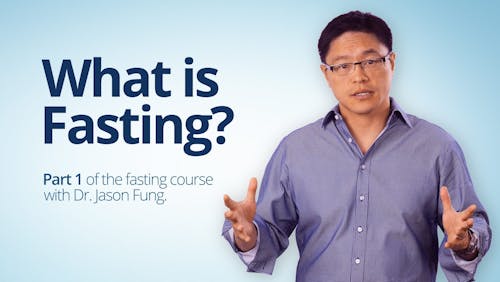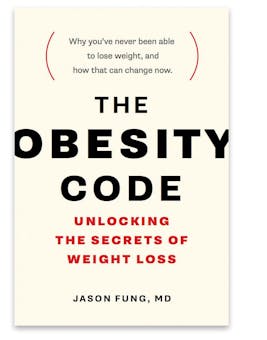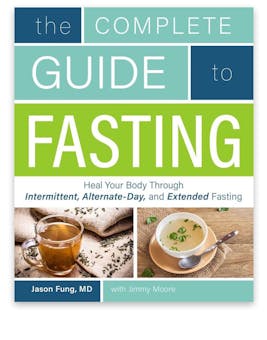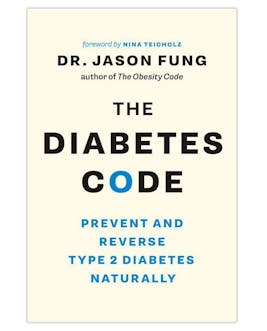Infertility, PCOS and the IDM program
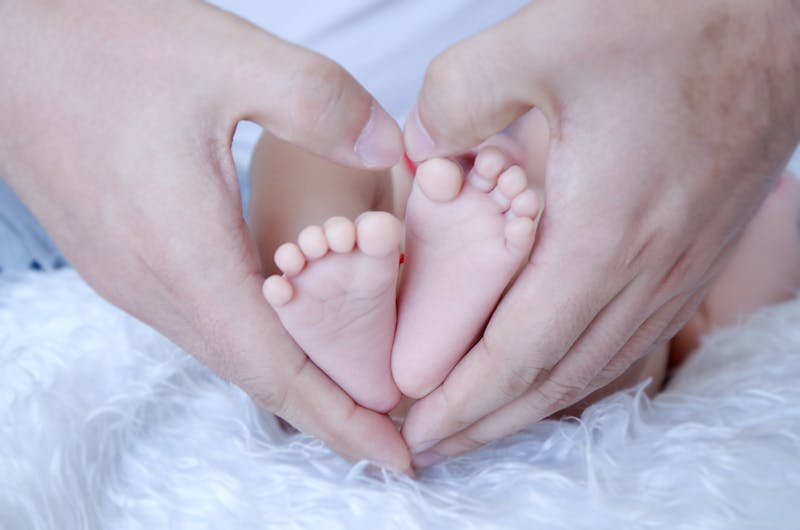
Dr. Jason Fung: I was having a discussion with Megan Ramos the other day in our clinic, and she mentioned that yet another patient had gotten pregnant following the IDM program. This particular person, being a bit older had never thought she would have her own baby, so getting pregnant was simply the greatest gift.
With that in mind, I wanted to tackle infertility and PCOS and I wanted to introduce an important member of the Intensive Dietary Management (IDM)team – Dr. Nadia. She is our resident Polycystic Ovary Syndrome (PCOS) expert and has a passion for the dietary treatment of PCOS and fertility. Dr. Nadia is one of our counselors, and contributes to our membership community answering questions and providing support.
Dr. Nadia: I have a strange reputation for getting people pregnant. People often seek me out after hearing “Be careful. Don’t go to that doctor unless you want to get pregnant.” My name is Dr. Nadia Pateguana and I’ve been a Naturopathic Doctor in clinical practice for over 15 years. For couples living with fertility trouble, it’s a welcomed miracle! Early in my career, I lived in a fairly small and tightknit community in Mozambique. I treated a South African woman, Charise, for weight loss. She wanted to “detox”, so I counselled her on my diet. Several months later, Charise booked an appointment, along with her husband, Johan. ‘Strange’, I thought, as I had met him only once in the initial visit.
When they arrived, Johan was the one who first spoke. With a lot of emotion, he announced that they were now expecting a new baby! For the first 6 years of their marriage, they were unable to conceive. I don’t quite remember how many rounds of IVF they had, but they underwent a gruesome and devastating fertility journey. Finally accepting the fact that they would never welcome a child of their own body into the world, they joyfully adopted their first child, now aged 7. But, in this unexpected twist of fate, they were now expecting their first biological child.
Johan was confident that this “detox diet” I prescribed for his wife was the reason for their sudden deliverance. Over the previous three months, Charise had successfully changed her eating habits and also kicked a long-standing, severe soda addiction. She adopted a low-carb diet, a strict low-carb diet, based on my “Base Diet” and “Detoxes” I went over with her. This diet warned against sugars, even the “healthy” sources of carbs like fruit and juices. It encouraged a moderate amount of protein and healthy fats: coconut oil, avocados, eggs, butter, olive oil, etc. Overcome with joy, they had come to thank me. I later learned that Charise had suffered a miscarriage and lost that child. But then, another “miracle” happened. She conceived for a second time, and gave birth to a healthy baby boy.
Johan wanted to understand this unexpected connection between this innovative diet and their new-found fertility, but I didn’t have one to give him. I did not know myself how she suddenly got pregnant. There was obviously a relationship, but at that time, so early in my career, I just did not understand the profound link. From a practical perspective, it didn’t really matter. I was proud of my many success stories, and would often explain to other patients that sometimes a little weight loss, and a “detox” might help them bring home a “little bundle of joy”.
Although we did not make a formal diagnosis, Charise very likely suffered from polycystic ovarian syndrome (PCOS). We will discuss the specific diagnostic criteria in Chapter 2, but perhaps the most heart-wrenching sequela of this disease is infertility. Having a family is perhaps the most basic of human needs, and the inability to bear your own children obviously impacts that essential human dream.
PCOS is the most common reproductive disorder in the world. It affects an estimated 8-20% of woman of reproductive age depending upon the specific diagnostic criteria used1(Epidemiology, diagnosis, and management of polycystic ovary syndrome, Clinical Epidemiology 2014:6; 1-13 Sirmans, SM and Pate KA). Forty percent of patients diagnosed with PCOS suffer from infertility. 90-95% of women in infertility clinics who cannot conceive due to lack of ovulation suffer from PCOS.
But my near-obsession with PCOS, fertility and diet is not merely professional, it’s also deeply personal. I became a naturopathic doctor after developing irritable bowel syndrome as a young adult. Conventional medicine did not help, but I found some reprieve with naturopathic medicine. I graduated from the Canadian College of Naturopathic Medicine in 2004, and moved back to my home country of Mozambique, planning to work with the Ministry of Health in impoverished communities. I hoped to learn local traditional medicine to complement my naturopathic training, which included some nutritional training.
However, Mozambique politics were complicated and getting a job at the Ministry was not simple. I knocked on many doors, but they were (sometimes not so politely) slammed in my face. Eventually, I requested a meeting with the Minister of Health himself. After looking at my CV and listening to my story, he awarded me a license to practice private naturopathic medicine. He further advised me that I would likely do well in Maputo, the capital of Mozambique and the city where I was born. I felt defeated, because this was not the reason I had returned to my native country. But, with little other alternative, and unwilling to turn my back on Mozambique, I did just as he suggested.
To my surprise, my practice was completely full within six months. Instead of helping the poor and malnourished, my clients were affluent, overweight suffering many of the same diseases of those in the Western hemisphere – the so-called ‘Diseases of Civilization’. Their overriding concern was weight loss, which would improve their type 2 diabetes, cardiovascular Disease, cancer and metabolic syndrome. They were suffering ‘Western’ diseases, because their diet had been modeled on the standard American diet (SAD).
Mozambique, at the time considered the poorest country in the world, ached with one of the highest rates of malnutrition. But this masked a two-fold situation. At the same time that people in rural areas were starving, urban dwellers were overfed. The Western culture had invaded Mozambique. KFC, pizza joints, and Coca-Cola everywhere! Thus, my medical practice focused almost exclusively on nutrition, diet and weight loss from its very origins.



I was a very thin child and grew up into a very thin adult. Seeing this, my patients believed “my diet” must work but this couldn’t be farther from the truth. My diet was not particularly healthy, I now realize, and my thinness might have been genetics, combined with the fact that I was a very picky and poor eater. I never had a proper, full meal until well into my thirties.
As a child and young adult, I disliked meat and vegetables immensely, so I snacked all day long. I lived off of candy, fruit, bread, lattes loaded with sugar and Coca-Cola! If I sat down for a meal with my family, I would eat refined grains with a bit of the sauce, wash it down with a Coke followed by some fruit. At night, I would go to bed with my bag of candies, and in the morning, I would start with a latte and toast. Only a couple of hours afterwards, I would feel shaky so I ate fruit or some more candy. I always believed that I suffered from hypoglycemia so eating sugar every few hours seemed to make sense. Little did I know that fast-forward 30 years I would develop metabolic syndrome.
By age 30, I was a successful nutritionist in Mozambique. Everyone knew Dr. Nadia. I helped many people lose weight and control their diabetes with my prescribed “Base Diet” and an occasional “detox”. But I followed none of these diets myself. I kept on eating my candies and drinking my Coke.
In late 2008, my husband and I started trying to conceive, but my diet was catching up with me. I started gaining weight. My acne (which I had always had) got a bit worse. My doctor told me I was thin and healthy. Every single month I waited for my period not to come, but it always did, followed by days of crying and feeling miserable. Something was wrong. By the end of the year, I realized I must be infertile. I was devastated.
By early 2010, I had gained close to 30 lbs although my Body Mass Index was still within the normal range. My acne was terrible and now my hair was falling out. Blood tests showed that my androgen (male hormones) levels were high, and an ultrasound revealed numerous cysts in my ovaries. I had stopped ovulating and could not therefore get pregnant. My suspicions were correct, and I was diagnosed with PCOS (Polycystic Ovarian Syndrome).
Because I was thin, my doctor overlooked everything else and simply prescribed Clomid, a type of fertility drug. I went home and simply cried. And cried. Only my husband’s positive attitude got me through this dark cloud of guilt and self-pity. He assured me we would get through this and his confidence gave me the strength to take matters into my own hands.
From my professional experience, I knew fertility improved when women under my care lost weight, as many became pregnant. My own weight wasn’t an issue (I thought) but I started the strictest of my own diets. If that’s what I had to do to get pregnant, I would do it. This extremely low-carb diet is called a ketogenic diet. No more candies, no more Coke, no more bread.
In the first month, I lost 2.5 kg (5.5 lbs), my acne cleared up, and my cycles normalized as I began to ovulate. The night before I took my first positive pregnancy test, I lit a candle. I was calm, and positive. I asked for nothing, but I wanted a baby. The next morning, I took the test. Those next 30 seconds I suffered the indescribably lonely agony of not knowing.
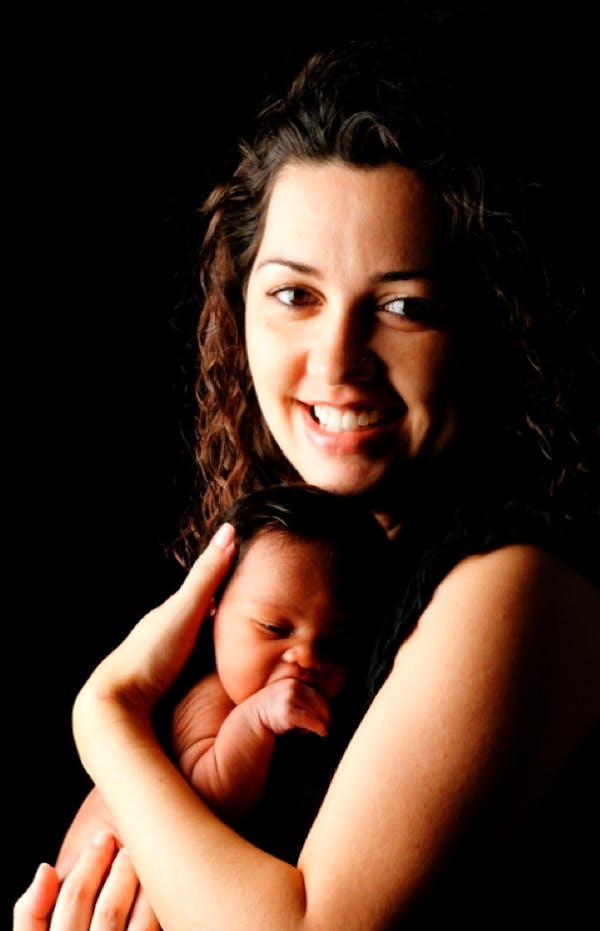


I had just been granted the greatest gift. This was the day I had waited for an eternity. There was a light at the end of the tunnel. I called my unwavering husband at work. Deep inside, never showing it, he had been very concerned about my physical and emotional wellbeing. Infertility is an all-encompassing psychic struggle. It takes a toll on people’s work, family and social life. In vitro fertilization (IVF), which I considered but refused, would have affected our finances too.
After I got pregnant, because I didn’t understand the key role of nutrition, I threw that diet right out the window! I didn’t think I needed it. I returned to eating my candies and my usual higher carb, smaller snacks, many times a day. I developed serious complications during the pregnancy, including high blood pressure and liver damage which eventually required a C-section at 38 weeks.
Beautiful Zinzi came into our lives. Unfortunately, my health was not great as I continued to suffer with high blood pressure and post-partum depression. One of the medications, amitriptyline made me gain 20 lbs.on top of the baby weight I was still carrying around.
Two years later, a large ovarian cyst ruptured requiring urgent surgical removal. I was on high blood pressure medication still and my sleep never recovered.
With baby #2, the tortuous journey began all over again. My doctor again prescribed clomid. This time, I was fatter, with a BMI in the overweight range and in much worse shape health wise. My biggest mistake was that I did not follow my own diet, but instead just took the medication. If they helped the first time, they certainly did not help this time around. Six grueling, agonizing months later, I still was not pregnant and crying constantly. It felt much more difficult even than the first time. Doom. All I remember is the overwhlming sense of doom.



Not all PCOS women are overweight, and not all overweight women have PCOS. After much deliberation, I decided to eat a low-carbohydrate diet full time. A couple of months after Zuri was born, I lost all the weight, got off all medication, my skin cleared up, and all the other PCOS symptoms were gone (as well as my older symptoms like IBS, cravings, mood swings, etc). Adopting a strict low-carb diet along with intermittent fasting was the way to go, for me.
I learned many things along the way, mostly the hard way. I might not know everything, but I would like to share what I have learned here in these pages, so that you do not go through the agony and the heartbreak of infertility. My passion in life is not only helping women get pregnant, but also help them lose weight and take control of their health through natural dietary measures.
More
Intermittent fasting for beginners
Dr. Fung’s top posts
Intermittent fasting
More with Dr. Fung
Dr. Fung has his own blog at idmprogram.com. He is also active on Twitter.
Dr. Fung’s books The Obesity Code, The Complete Guide to Fasting and The Diabetes Code are available on Amazon.

